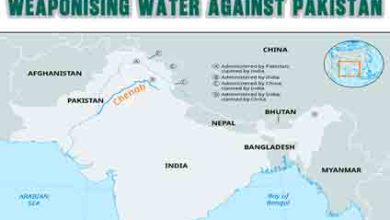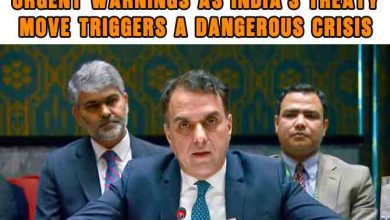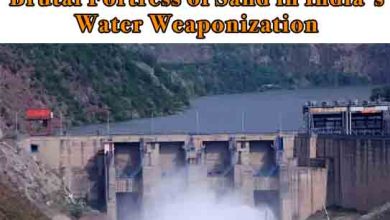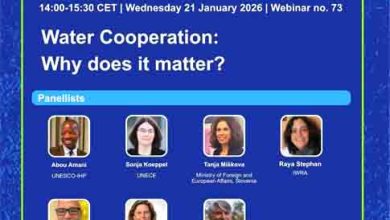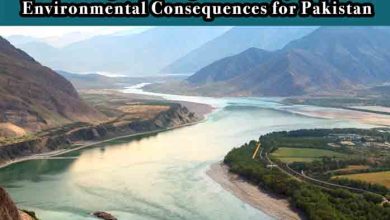Powerful Breakthrough: Arab Water Council Drives 5 Transformational WEFE Nexus Climate Solutions
The Arab Water Council WEFE Nexus initiative marks a powerful breakthrough in mobilizing Green Climate Fund support for climate resilience, water security, renewable energy, and sustainable food systems across the Mediterranean.
The Arab Water Council WEFE Nexus initiative has reached a historic milestone with the successful conclusion of its final online session under the Mediterranean regional training programme. This landmark event marked a powerful step forward in mobilizing Green Climate Fund (GCF) support for integrated climate solutions addressing water, energy, food, and ecosystem security.
Held with wide regional participation, the session brought together 25 project teams from across the Mediterranean region, each presenting innovative and scalable solutions designed to confront climate change through cross-sectoral integration.
Arab Water Council WEFE Nexus: A Strategic Climate Platform
The Arab Water Council WEFE Nexus framework focuses on breaking traditional silos between water, energy, food, and ecosystems. By promoting integrated planning and climate-smart investments, the initiative supports countries in transitioning toward resilient, low-carbon development pathways.
This approach aligns directly with the objectives of the Green Climate Fund (GCF), which prioritizes climate adaptation, mitigation, and sustainable development—particularly in climate-vulnerable regions.
External reference: Green Climate Fund – Official Website
Mobilizing Green Climate Fund Support
One of the most impactful outcomes of the programme was the strengthened capacity of participating countries to design bankable GCF proposals.
Through expert-led sessions, participants gained hands-on experience in:
- Climate risk assessment
- Financial structuring for climate projects
- Aligning proposals with GCF investment criteria
- Integrating environmental and social safeguards
This process is critical for unlocking climate finance and accelerating real-world implementation.
Innovative Solutions Presented by Project Teams
The 25 project teams showcased a wide range of transformative climate solutions, including:
Renewable Energy–Powered Irrigation
Solar-driven irrigation systems designed to reduce emissions while improving agricultural productivity in water-stressed regions.
Wastewater Reuse Systems
Circular water solutions that convert wastewater into a resource for agriculture and industry.
Climate-Resilient Agriculture
Smart farming techniques that enhance food security while adapting to extreme weather conditions.
Desalination Capacity Building
Energy-efficient desalination projects aligned with renewable power sources.
Circular Economy Innovations
Waste-to-resource models that reduce environmental pressure while creating green jobs.
Nature-Based Solutions
Ecosystem restoration approaches that strengthen biodiversity and climate adaptation.
Strengthening Climate Resilience and Food Security
The Arab Water Council WEFE Nexus places climate resilience at its core. With the Mediterranean region facing rising temperatures, water scarcity, and food insecurity, integrated solutions are no longer optional—they are essential.
Projects presented under the programme directly address:
- Drought resilience
- Sustainable water allocation
- Food system stability
- Ecosystem protection
These interventions contribute to long-term resilience and sustainable livelihoods.
Gender-Responsive and Inclusive Climate Action
A defining feature of the programme was its emphasis on gender-responsive approaches. Women’s leadership, participation, and empowerment were integrated across project designs, recognizing women as key agents of climate adaptation.
This inclusive framework strengthens social equity while improving development outcomes.
Regional Collaboration and Strategic Partnerships
The Arab Water Council acknowledged the vital support of:
- Union for the Mediterranean (UfM)
- Green Climate Fund (GCF) experts and consultants
- Sida – Swedish International Development Cooperation Agency
These partnerships enabled technical excellence, peer learning, and regional cooperation.
External Link: Union for the Mediterranean
External Link: Sida – Swedish International Development Cooperation Agency
From Concept to Implementation: What Comes Next
Following the conclusion of the training programme, the next phase will focus on:
- Technical assessment of project proposals
- Refinement and alignment with GCF requirements
- Strengthening monitoring and evaluation frameworks
- Continued mentorship and regional collaboration
This transition from concept notes to full-scale implementation marks a critical step in translating climate ambition into real-world impact.
Why the WEFE Nexus Matters for the Mediterranean
The Mediterranean region is one of the world’s most climate-vulnerable zones. Rising temperatures, water scarcity, and environmental degradation threaten social and economic stability.
The Arab Water Council WEFE Nexus offers a holistic, scalable, and future-ready framework that enables countries to address multiple challenges simultaneously ensuring sustainable development while safeguarding natural resources.
Conclusion: A Transformative Path Forward
The successful completion of the Mediterranean WEFE training programme represents a powerful and hopeful milestone in regional climate action. By aligning innovation, finance, and cooperation, the Arab Water Council is empowering countries to turn climate challenges into opportunities for sustainable growth.
As nations move from planning to implementation, the WEFE Nexus approach stands as a model for integrated climate solutions—delivering resilience, equity, and prosperity for future generations.



